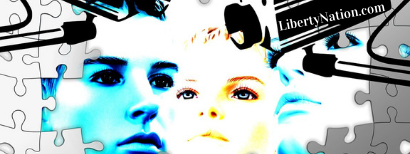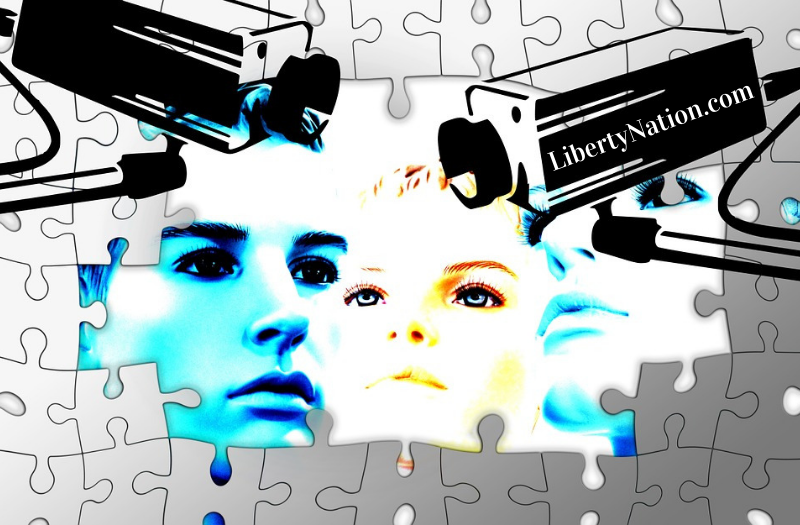As the technological realm becomes more pervasive, whom can we trust? Each week, Liberty Nation brings new insight into the fraudulent use of personal data, breaches of privacy, and attempts to filter our perception.
Censorship is becoming a major issue in our increasingly digital world. As more of our day-to-day living is conducted online, where nothing can be truly deleted and everything can be traced, it is becoming easier for those with power to disallow those who hold an unapproved point of view. Identity theft movies like The Net illustrated how impossible life is when society doesn’t recognize who you are, but what if your right to basic services is simply rejected based on your ideology?
Mastercard Pressured to Deny Service to “Extremists”
Alex Jones
Social media censorship is one thing, but things progress to a whole new level when basic services are refused to people on the basis of their opinions. Mastercard has been forced by activist group SumOfUs to allow a vote amongst its shareholders on the possibility of creating a human rights committee “to address the threat posed by far-right extremists.” The committee would be able to ban financial transactions of those people deemed to have extreme views. SumOfUs filed a shareholder resolution, and the vote will take place during the company’s AGM in June. The resolution says:
“Mastercard’s exposure to conflict in human rights risk is significant as our company operates in over 210 countries and territories, some of which have a significant risk of human rights violations. Companies can face risks related to human rights even when they only perform support function … Mastercard continues to process payments for organizations such as American Border Patrol, League of the South, Proud Boys and Stormfront … We believe that the significant risks associated with adverse human rights impacts at Mastercard warrant specific accountability and responsibility at the Board level.”
Mastercard has resisted the push toward the creation of the committee, and the board has recommended unanimously that shareholders vote against the proposal, claiming that “The Board does not believe that establishing a separate human rights committee is necessary to properly exercise its oversight of this important area.”
 This is not the first incident of financial services being potentially denied to disallowed figures. Paypal has refused service to controversial groups and figures including Tommy Robinson, Infowars and microblogging site Gab. It has also been alleged that Chase Bank screens its clients’ political affiliation.
This is not the first incident of financial services being potentially denied to disallowed figures. Paypal has refused service to controversial groups and figures including Tommy Robinson, Infowars and microblogging site Gab. It has also been alleged that Chase Bank screens its clients’ political affiliation.
As always, the question arises: Who gets to decide what are extreme views? What if the definition changes over time? As our rights become eroded, it becomes more likely that they will continue to wear down until little remains – have those championing these bans realized that one day they too may be on the receiving end?
Digital Bill of Rights?
Facebook has once again moved to ban voices it deems harmful, as LN’s Jeff Charles recently discussed. But the level of censorship has been taken a step further, with not only the targeted individuals removed, but also any Facebook users who share content created by the banned figures without simultaneously condemning them. Paul Joseph Watson, Infowars employee and one of the expelled personalities, predicted that enforced political correctness could result in those people with the “wrong” opinions one day being barred from getting bank loans and other key services – not an entirely unrealistic prophecy given the pressure already being put on Mastercard. Watson suggested in a YouTube video that the solution could be to create a “digital bill of rights” that would guarantee freedom of speech online.
Is an internet bill of rights the way to end political discrimination on the internet, or will government intervention prove more damaging than beneficial? Given the international quality of the World Wide Web, could any individual country enact such a law, or would it simply be another excuse for further centralization of power at a multinational level?
Reactionary and Preemptive Censorship
While accusations of “extremism” and “hate speech” are triggered at the drop of a hat these days, genuine examples of these things do, of course, still exist, as seen in recent mass shootings. Two recent attacks – in New Zealand and Sri Lanka – have resulted not just in tragic deaths and trauma, but also provided an excuse for governments to seize extra powers. As we have seen in the past, such reactionary lawmaking can have a significant impact on present and future rights.
 Shortly after the Christchurch mosque shooting, the New Zealand government classed the shooter’s video and manifesto as “objectionable” and made it a crime to spread, copy, exhibit or even possess the materials. While this content is surely disturbing, many objected to the government’s heavy-handed approach in censoring what people were and were not allowed to see. Anyone caught with the material is subject to 14 years imprisonment, and indeed several people have been arrested for the offense. New Zealand and Australian telecom providers also took it upon themselves to restrict access to websites they thought may be used to distribute the content – although many of the blocked sites had no association with the shooter’s video or manifesto. Showing just how selective the censors can be, Facebook and Twitter, which were instrumental in distributing the live-streamed video of the attack, went untouched by any bans.
Shortly after the Christchurch mosque shooting, the New Zealand government classed the shooter’s video and manifesto as “objectionable” and made it a crime to spread, copy, exhibit or even possess the materials. While this content is surely disturbing, many objected to the government’s heavy-handed approach in censoring what people were and were not allowed to see. Anyone caught with the material is subject to 14 years imprisonment, and indeed several people have been arrested for the offense. New Zealand and Australian telecom providers also took it upon themselves to restrict access to websites they thought may be used to distribute the content – although many of the blocked sites had no association with the shooter’s video or manifesto. Showing just how selective the censors can be, Facebook and Twitter, which were instrumental in distributing the live-streamed video of the attack, went untouched by any bans.
Sri Lanka, in response to attacks on hotels and churches on Easter Sunday, enacted a sweeping block on social media, purportedly to prevent misinformation spreading about the incidents. Spanish journalist Vicent Partal, speaking on RT, made an interesting point about the Sri Lankan situation. He suggested that while the New Zealand reaction may be been justified in banning materials used in a past incident, Sri Lanka was taking the extra step of preemptively trying to prevent future spreading of “fake news,” that may or may not occur as the result of online communication:
“I agree that these kinds of pictures [Christchurch video] don’t need to be shown in order to understand what is happening. But this is very different to what is happening now is Sri Lanka. In Sri Lanka, it’s the government trying to prevent something that don’t know even it will happen [sic]. So, it’s crossing a line, it’s a very different line … I don’t remember any situation before these Sri Lankan events when the government tried to control the social networks preemptive[ly], before something happened on the social networks.”
If it is so easy for the government and corporations to control what content or channels of communication that populations can access, how long will it be until such mass censorship is used to block any and all messages these powers don’t wish us to see?
Recommendations
In the same RT segment, independent journalist Derrick Broze said, “I do think the answer is for people … to start to look for more decentralized, alternative platforms … I think that it’s time for people to start realizing that by centralizing our communications through these platforms, through WhatsApp, Facebook, though Instagram and what have you, we are making it easier for anyone who wants to limit that conversation and to limit that communication.”
Broze recommends Blockchain based platforms for people who are familiar with such things. For those of us who are not so tech-savvy, maybe we can take some advice from Wall Street: Diversify, diversify, diversify! One hates to recommend that you get more credit cards or social media accounts but, if you use these services at all, putting all your eggs in one basket could leave you high and dry in the future.
~
At Liberty Nation, we love to hear from our readers. Comment and join the conversation!









